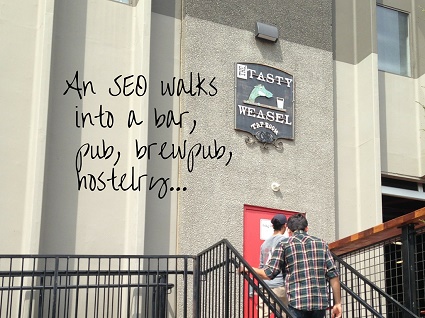Keywords, when you’re talking about SEO, are the terms people type into the search box at their favorite search engine when they’re looking for your goods and services. You want to know what those words are and then you want to make sure that you have great pages for people seeking those keywords. The search engine will offer your excellent page to people making that search, and those people will click through and learn about your offerings.
But that doesn’t mean that a bookseller should plaster the word “books” all over each page of the company website and hope for the best. And this week, a number of our projects and client questions have brought up exactly that point. If you know the most likely keyword for your target customer, should you use it as often as possible, or should you change it up?
Should you be consistent?
One of our clients thought maybe we should use (for example) “grass-fed organic beef” every time we use the word “beef” on his website. This, he thinks, would really get through to the search engines. Search engines are smarter than that nowadays, so you don’t have to do that. And it’s fortunate that you don’t, because this technique really gets in the way of one of the most important things you must do for modern SEO and for conversion: write good, natural, human language.
Being determined to use your full brand phrase keyword in every possible place gives you sentences like, “Grass-fed organic beef provides important protein as well as delicious flavor, so try our grass-fed organic beef in your favorite grass-fed organic beef recipes: grass-fed organic beef stew, grass-fed organic beef steak, shepherd’s pie, and lasagne.” You’re almost sure to end up with keyword stuffing, which can lead to penalties from search engines, as well as making your readers uncomfortable.
What’s more, all your customers aren’t using the same keyword all the time anyway. If you already have the best page possible for people searching for “grass-fed organic beef,” you should go ahead and work on other search terms.
Should you use misspellings or alternate spellings?
Search engines are really good spellers, and misspellings don’t have much effect on search. While we have seen some evidence that a misspelling might rank higher for a matching misspelled keyword search, this isn’t a strong enough factor to make misspellings good unless for some reason you are sure that your perfect client is a poor speller. If that’s not the case, then you have a spelling error on your website, which makes you look sloppy and loses you authority with search engines and humans alike.
But we are working on a client website which gets a lot of traffic through an alternate spelling of their primary keyword. Think of “email” and “e-mail” as an example of an alternate spelling. We considered using that alternate spelling, but we found through the Search Console that this organization ranks equally well for both variants already, so we let it go. We might throw it in occasionally in a blog post, but we won’t take a chance on confusing readers by using both variants on main pages.
Should you use synonyms?
We’re working with a local solar energy company to update a new website, an outgrowth of a site we built for them years ago. I was reminded, as I wrote about solar energy all over the home page, that this client had originally wanted us to use “photovoltaic array” rather than “solar energy,” because that was more accurate.
Search engines are smart enough not to be confused by misspellings, but they can be confused by synonyms, and especially by arcane synonyms. If your customers are looking for baby clothes, don’t write about togs for tots unless you’ve already used the word “clothes” plenty of times. And if you aren’t sure what terms are most often used for searching for your goods and services (hint: it might not be what you call them), look it up with Google Trends. But once you’re confident of your clarity, you should use synonyms.
Search engines no longer look just for keywords. They look for language containing a network of related words — that is, normal human language. People talking about laser skin treatments do not say “laser tattoo removal” over and over. They use lots of different, related words including “skin,” “tattoo,” “ink,” “damage,” “treatment,” and so forth. Failure to do this is a strong signal that the web content on your website was not in fact written by human beings. So why should Google bother to index it?
So yes, use synonyms and other related words. It makes for better writing, anyway. And that should always be a goal. We’ve found over and over again that better-written content ranks better than poorly written content over the long run.
In other words, write natural, useful, informative, entertaining content for your website. Be smart about your keywords, but not obsessive. And get help if you need it.


Leave a Reply